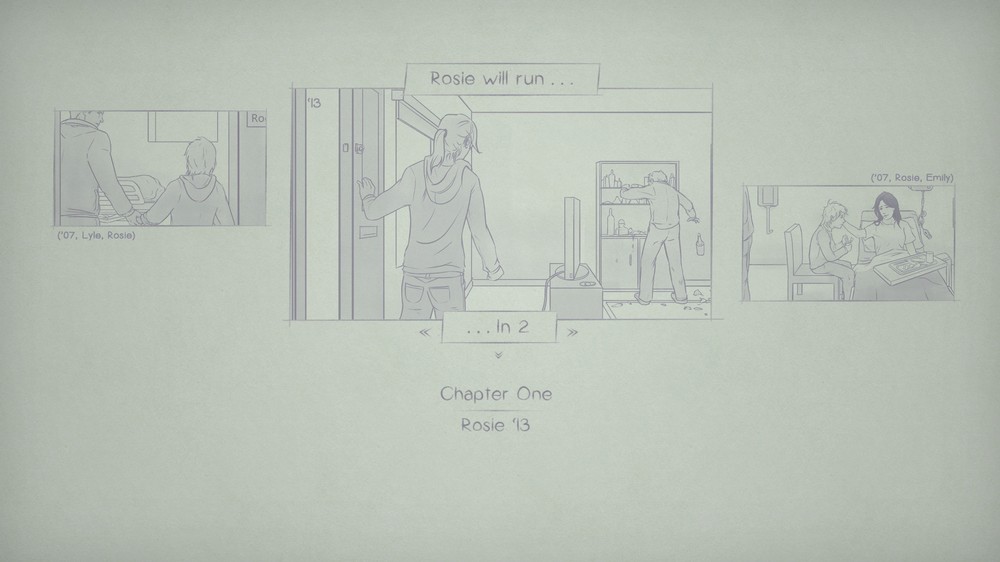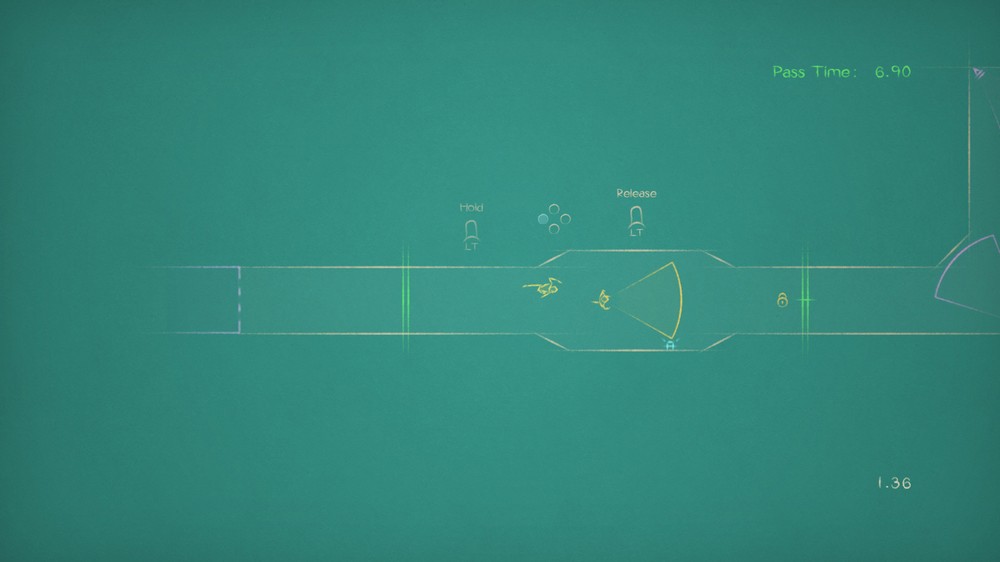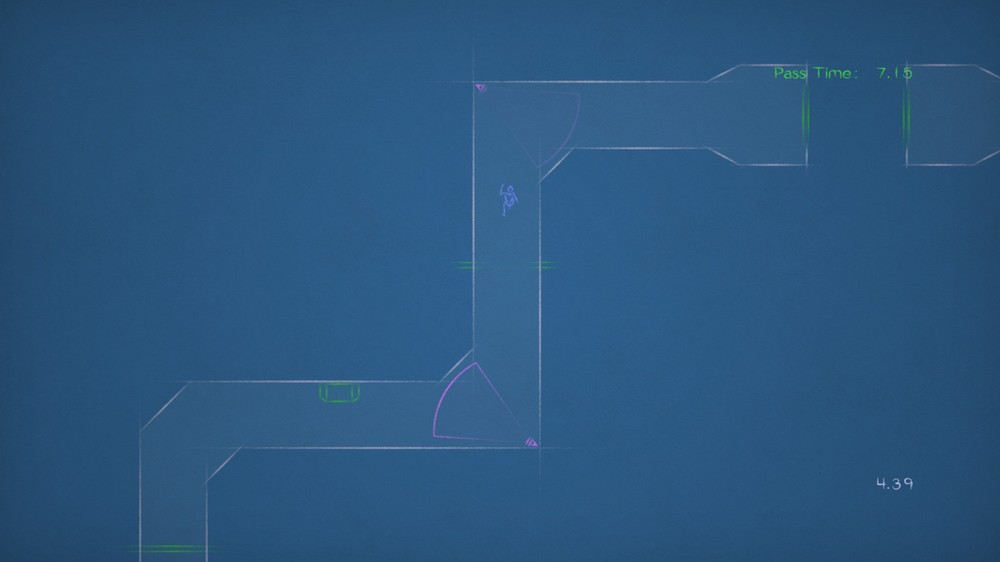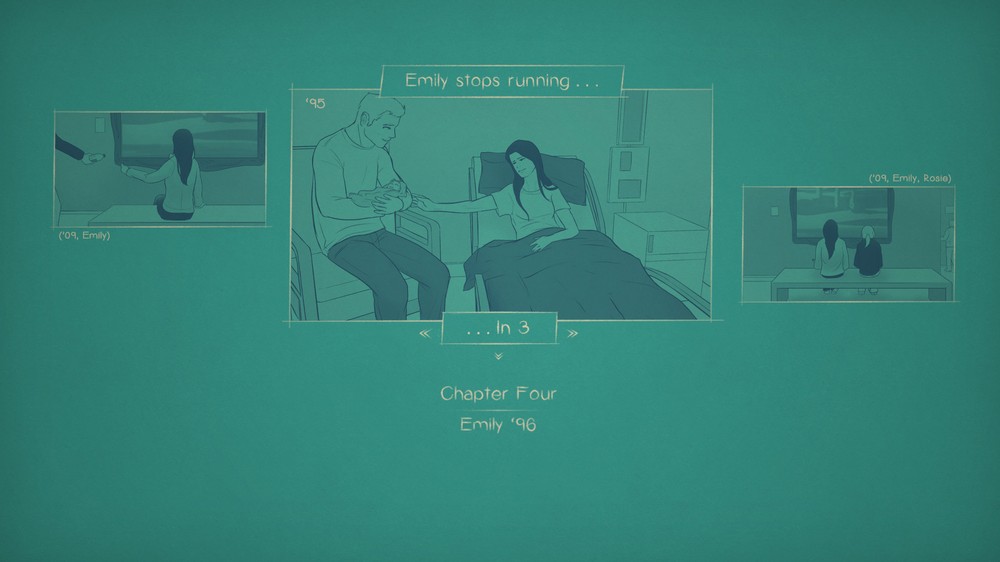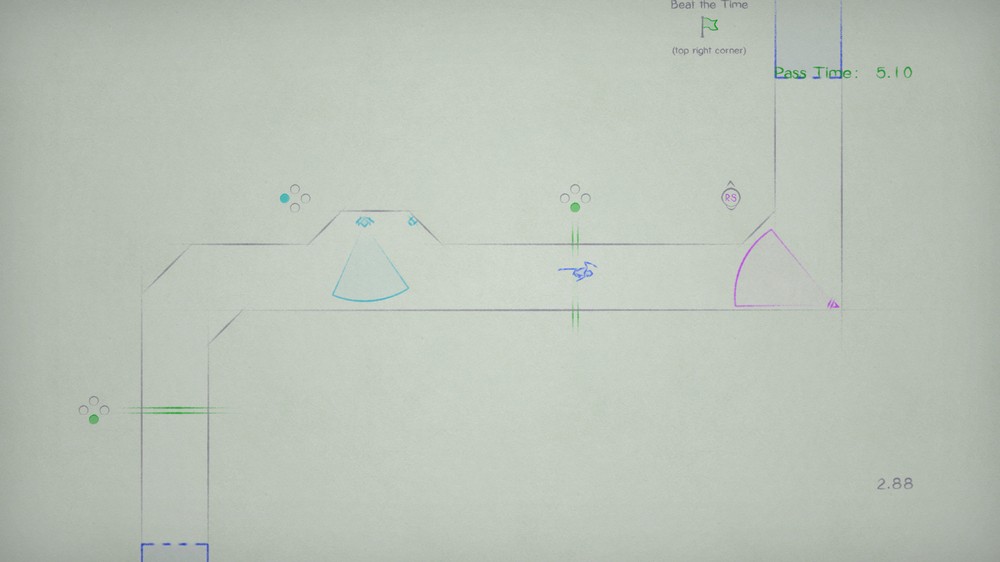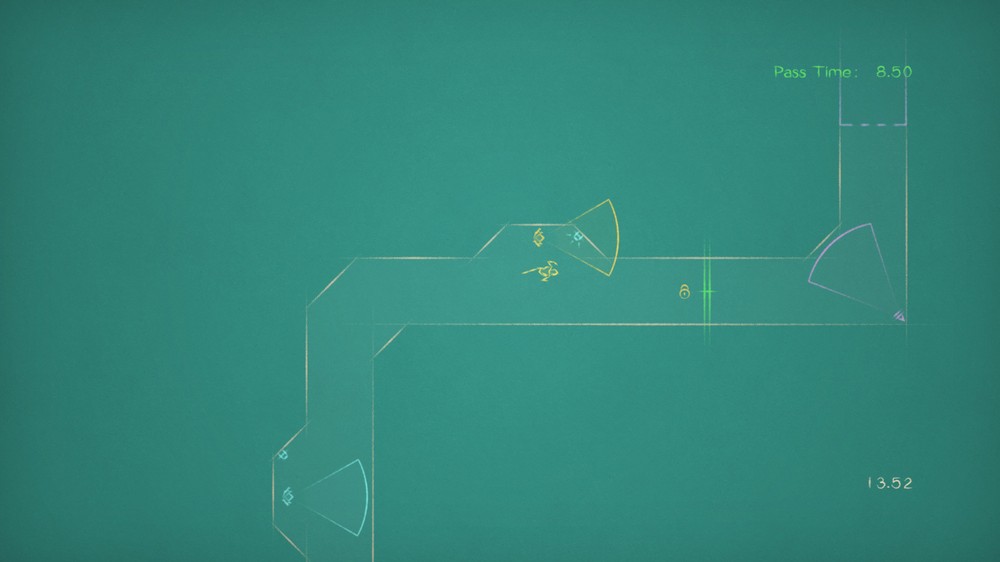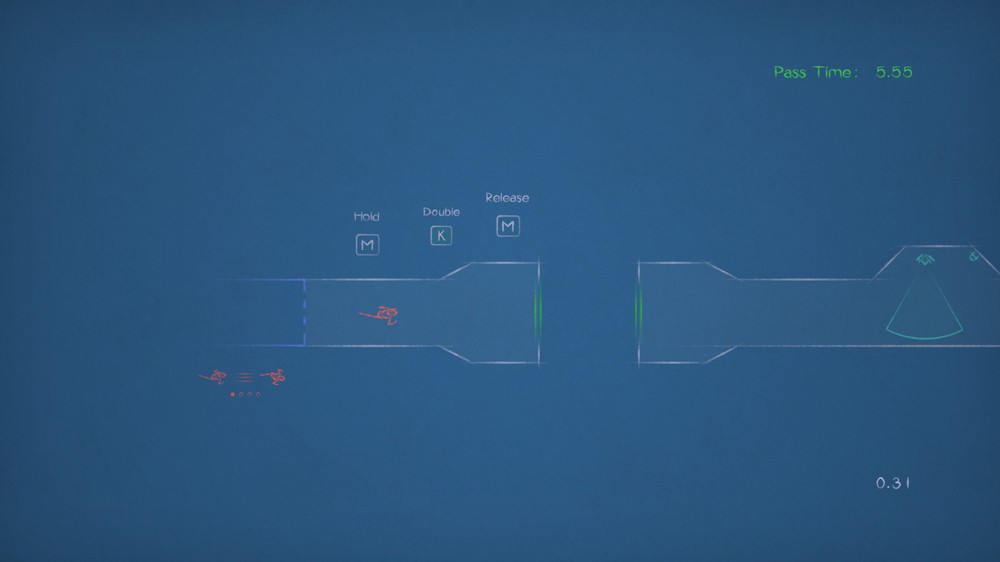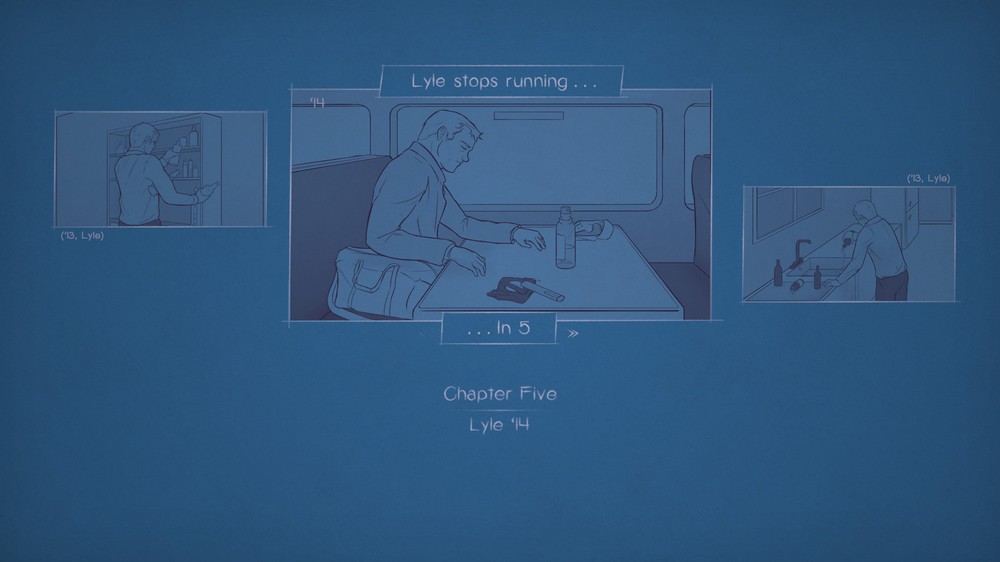Sprinter. Just about as simple and explanatory a title as a game such as this needs. Because that’s what it’s about, in a nutshell. When you boil it down to the essentials, the game is about people running away from their problems. If you take the time to piece together the subtle, but powerful storyline that accompanies the passing of each of five sections of the five “chapters” of the game, you’ll see that it deals with more than just that, but that’s the overall theme, for sure. Each chapter focuses on a different interconnected character in the story, which adds another layer of complexity. Similarly, as you progress, each chapter introduces another layer of complexity in the control scheme and method by which you complete the challenges.
The layout of the game is quite simple. It is a top-down view of a hallway, illustrated in a way that resembles the blueprint of a building. The art style is very hand-drawn and simple looking, with very few colors. You direct your character through the various hallways using specific commands to activate color-coded actions, such as opening a door, distracting a guard, shutting off a camera as you pass by, etc. Later chapters add things like collecting keys and jumping gaps. These commands are also more complex than just clicking a button, requiring you to charge it up and then release the key at the right moment, which then forces you into doing multiple commands simultaneously in order to pass by without slowing down.
Slowing down is pretty much a death sentence in this game. You’ve got to wind your way through the corridors as quickly as possible without hitting a wall or being stopped by some other barrier in order to get to the finish before the minimum passing time expires. I can’t tell you how many times I failed a level and had to start over because I crossed the finish line a mere .01 seconds late. This can cause a lot of frustration.
The game can be played using a keyboard or a controller. It states that a controller is recommended, so I tried it with that. The interface is quite straight-forward. You guide the character using the left stick. Opening the green doors is the A button on an Xbox controller. Distracting a guard is X. Turning a camera off has you flicking the right stick upwards. Each command, on their own, is fairly simple. But then you have to start chaining them together in more and more complex patterns and that’s where it gets frustrating; especially when one false move means having to go back and start over again.
The levels themselves are all quite short, the passing times usually being under 5 to 8 seconds, approximately. However, you can easily spend ten minutes or more trying a level over and over again until you get it just right. This repetitiveness can start to feel tedious and there were many times that I felt my blood pressure beginning to rise, especially when you’d get it all right, finally, but you’d still miss the minimum time by tenths or even hundredths of a second.
Luckily, the game’s score is beautiful and almost serene, especially combined with the fact that the various actions you perform also create a sound effect that is complementary to the music. If it weren’t for this score, I would have quit this game after the first few failures. But because the music is so immersive, it settles you in and helps you get past those parts where you just want to throw your keyboard or your controller through the monitor and uninstall the game forever. It soothes you into thinking, “maybe this time I can get it.” Because of the music, the game takes on the feeling of a rhythm game in that sense. When you do a level “right” it just flows, everything working together, like it was all choreographed. When you’re off, you feel it long before you fail. But when you’re on, it feels good. The sense of relief and accomplishment when you finally get through all the obstacles and across the finish line under the time limit is quite satisfying.
The story is told in graphic-novel-esque panels with very minimal text. Basically, you have to infer the story. As far as I can tell, it is about a family who, at one time were very happy and who then experience some trauma and difficulty, which then tears each of them apart to the point where they run. Run out of frustration, out of despair, out of rage, whatever the case may be. But the story is compelling.
I got to a point in the game, about halfway through it, where I felt like I couldn’t physically complete the next level. The controls had gotten complex enough that I kept repeating the level over and over again. I ended up quitting out of frustration, but I think that the bigger frustration was that I really wanted to see what happened next. There is an easier difficulty that I may go back and put it on, just so that I can complete the game and see where the story leads, because I’m fairly sure that it just isn’t in my skillset to complete the game on the normal difficulty level. It does speak very well for the story, though, that it is good enough to make me want to see it through to the end. Especially, when, on the surface, Sprinter looks like anything but a game that would have a focus on story.
I tend to not like games that make me have to repeat a level over and over before I can get it right. I don’t really like repetition and I am not particularly fond of precision games, but there’s something about this one that makes me want to come back for more. I guess it’s that sweet spot of being just simple enough that you always feel like you’re just about to get it but challenging enough that you don’t feel like you’re wasting your time. Also, for people who might be a little more adept than I am, there are tougher time challenges that await you after you complete a chapter. I didn’t even have the courage to go back and see if I could come close. I was happy enough to pass the level once and move on. Again, I felt like it was more the mystery of the story and the evolution of the feel of the game that kept me going, rather than the mechanics themselves.
Overall, for a game that costs $7.99 at full price, on sale at the time of writing this at $6.39, you really can’t go wrong if you’re looking for a game that is approachable, quick, and surprisingly endearing.




